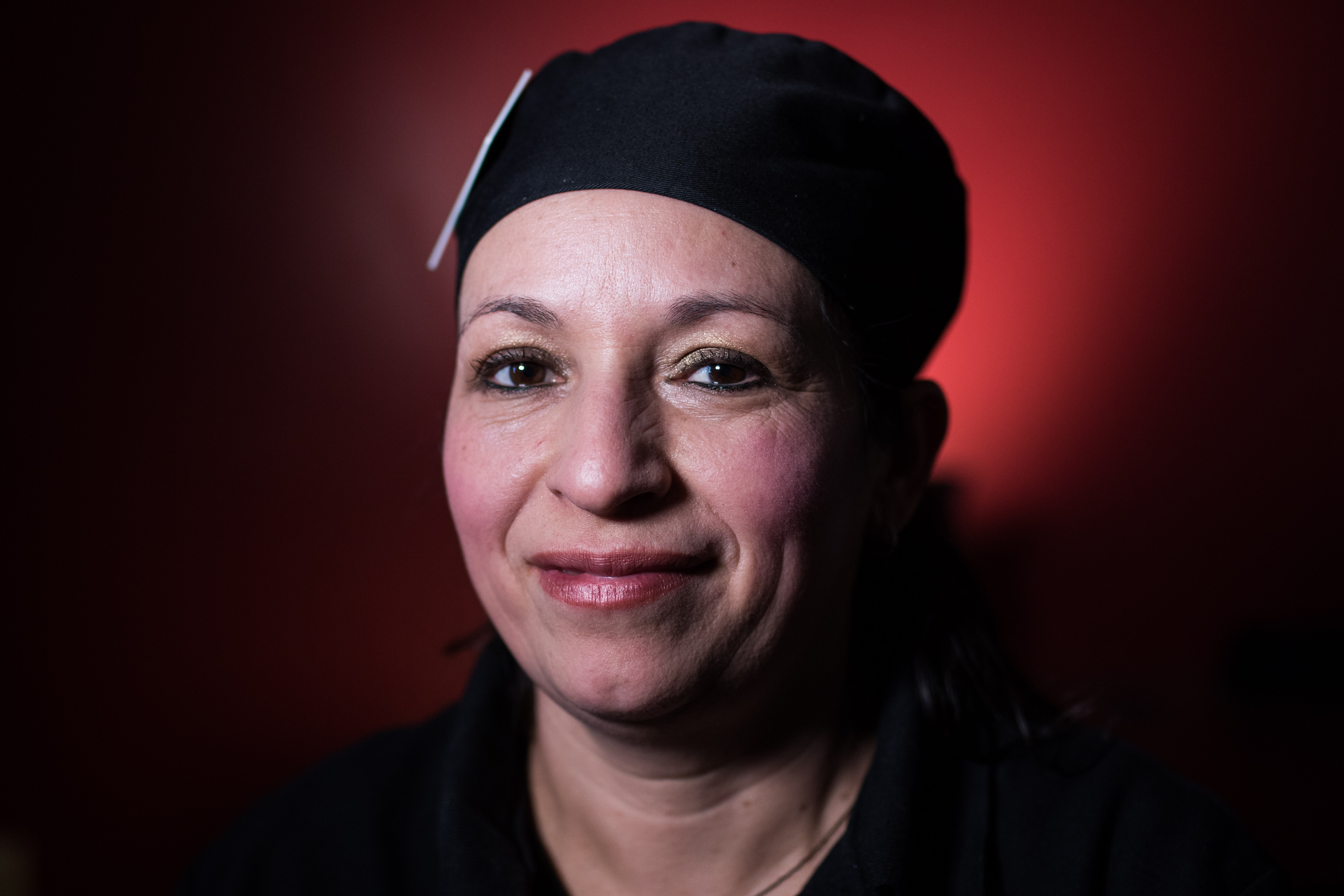The Trump effect: Immigration at CU
Rosa Cardoza de Gutierrez spreads peanut butter on slices of bread as students begin to wake up across the University of Colorado Boulder’s campus.
By 9 am, graduate student Chu May Paing begins her class on languages in U.S. society, speaking fluent English through her Burmese accent.
Before lunch, Rosario Cardoza, Rosa’s niece, prepares food in the C4C dining hall for the upcoming rush.
During afternoons when the campus is quiet, Samichhya Thapa thinks back to the lazy afternoons of her childhood in Nepal.
After classes, when Isaac and his friends start planning spring break trips, he is reminded that he cannot leave the country — as a DACA student at CU, he would not be allowed to reenter.
As Congress debates the future of illegal and legal immigration, students and employees at CU worry about the repercussions of such restrictions on immigration, while others live under the even greater threat of deportation.
Several major immigration programs are under scrutiny by the Trump administration: the Deferred Action for Childhood Arrivals program (DACA), Temporary Protected Status, the diversity visa lottery and family reunification. The CUI spoke with CU students and employees who have benefited from each of these programs.
—
National politics bursts the “Boulder Bubble”
Ten percent of Boulder County’s population was born abroad. Despite Boulder’s liberal and outwardly pro-immigration environment, it is not impervious to policy changes and backlash against immigrants.
In isolated incidents, white-supremacist and anti-immigrant flyers were found on campus last semester. At a rally protesting Trump’s travel ban, a counter-protester held up a sign that read “they have to go back.” Other immigrants and people of color have described hateful rhetoric on campus.
Despite isolated incidents of hate, many immigrants described an overall welcoming environment on campus. Larger impacts await Boulder, and CU specifically, in the wake of potential immigration reform.
The debate over immigration, both legal and illegal, has become a lightning rod for race, economics and identity. For the roughly 70 DACA recipients at CU and 19 individuals under Temporary Protected Status, reform could mean potential deportation.
Last September, the Trump administration threw the future of DACA recipients, also called “dreamers,” into the air by rescinding the program that has protected 800,000 immigrants since its creation in 2012.
DACA offers a two-year, renewable protection from deportation, a social security number and authorization to work or study in the U.S. All DACA recipients were brought here unlawfully as children and have lived in the U.S. for most of their lives, often not remembering the country they were born in or how they came to the U.S.
Before the inauguration of President Trump, Boulder County passed laws prohibiting its employees, especially police officers, from working with federal immigration officials. Known as a “sanctuary city,” Boulder joined many other cities in refusing to cooperate in the deportation of migrants.
If not for a a federal court injunction, today, dreamers’ DACA benefits would have begun to expire. For the roughly 70 DACA recipients currently enrolled at CU, they now live in a legal limbo, caught in a judicial, legislative and cultural battle over their future.
New federal policies also threaten those under Temporary Protected Status. The program grants temporary legal status to 300,000 individuals from disaster-stricken countries. Among the ten countries listed, TPS designations will expire for El Salvador, Haiti, Syria, Sudan and Nicaragua within the next 15 months, potentially sending many—including CU employees—back to dangerous environments.
Similar to the DACA program, TPS could be renewed every 18 months. Since its termination, the protective status the program offered has begun to expire, leaving individuals with the choice of staying in the country undocumented or returning to an unstable environment.
“I don’t sleep well since then,” said de Gutierrez on her reaction to the termination of TPS.
—
Legal immigration thrown into the debate
The diversity visa lottery, which awards 50,000 visas annually to randomly selected, pre-screened applicants from countries with historically low immigration, has also caught the ire of the president. During a speech in December 2017, Trump said the program allows in “the worst of the worst.”
Diversity visa beneficiaries would not face changes to their status the way DACA recipients would. However, the fate of the program and family reunification benefits are now being used as bargaining chips in Congress.
“I wish one person’s actions would not reflect on the entire community,” said Kushalta Subedi, a diversity visa recipient from Nepal and current sophomore at CU. Subedi and other diversity visa recipients rebuke the president’s assertions that they pose a threat to the U.S.
On top of eliminating the diversity visa program, Trump wants to change the U.S.’s current family-based immigration system to a “merit-based” one. The switch would prioritize high-skilled workers over those with current family ties.
Using the idea that blocking low-skilled immigration would save American jobs, Trump is charting a course towards a dramatic reduction in immigration in the U.S—limiting up to 22 million from entering the U.S. over the next 50 years, according to libertarian think tank the Cato Institute.
Some of CU’s employees that work in low-skilled positions have come through the family reunification and diversity visa immigration programs. CU does not track how many of its employees have come through these programs and did not provide an estimate.
The idea that when an immigrant gains a job, a natural-born American loses one is “patently false,” said Brian Cadena, an associate economics professor at CU. The economy is not zero-sum game and often, immigrants add to the economies they live in, Cadena said.
Despite the evidence refuting immigration leading to wage suppression and job loss, immigrants have borne the brunt of frustrations for economic woes.
—
No longer “a nation of immigrants”
Immigration once wove itself into the fabric of American identity, but now occupies a less-coveted spot on the list of untouchable dinner-table conversations. The United States Citizenship and Immigration Services recently removed the phrase “a nation of immigrants” from its mission statement, replacing it with a statement that includes “protecting Americans, securing the homeland, and honoring our values”.
For everyone the CUI spoke with, immigration is much more than economic or policy talking points. To some, the process of coming to the U.S. stands out either as a personal milestone or as an event which though they may not remember, drastically shaped the course of their lives.
These stories profile some of the many immigrants in the CU community, documented or otherwise.
Read more about each person’s experience in our ongoing profile series of immigrants at CU.
Stuti Pandey, Samichhya Thapa and Kushalta Subedi‘s stories
Rosa Cardoza de Gutierrez’s story
Contact CU Independent Editor-In-Chief Jackson Barnett at jackson.barnett@colorado.edu.
Contact CU Independent Breaking News Editor Heidi Harris at heidi.harris@colorado.edu.
Kristin Oh contributed to reporting.






